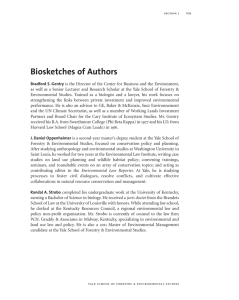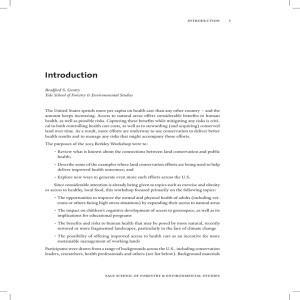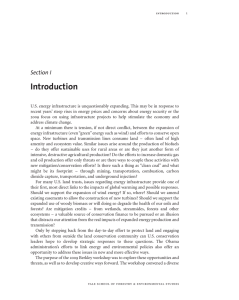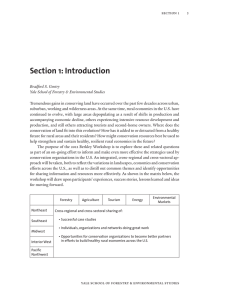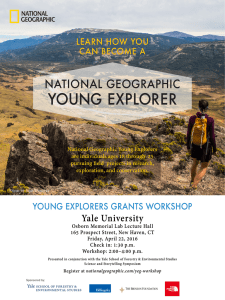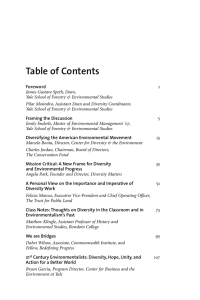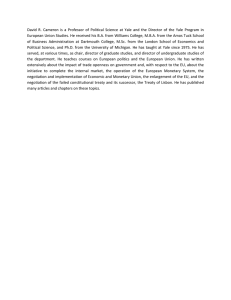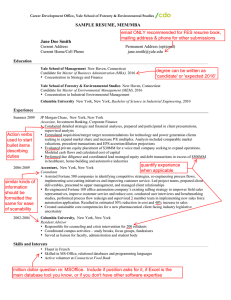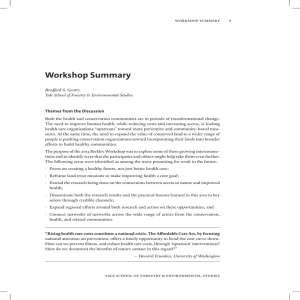Introduction
advertisement
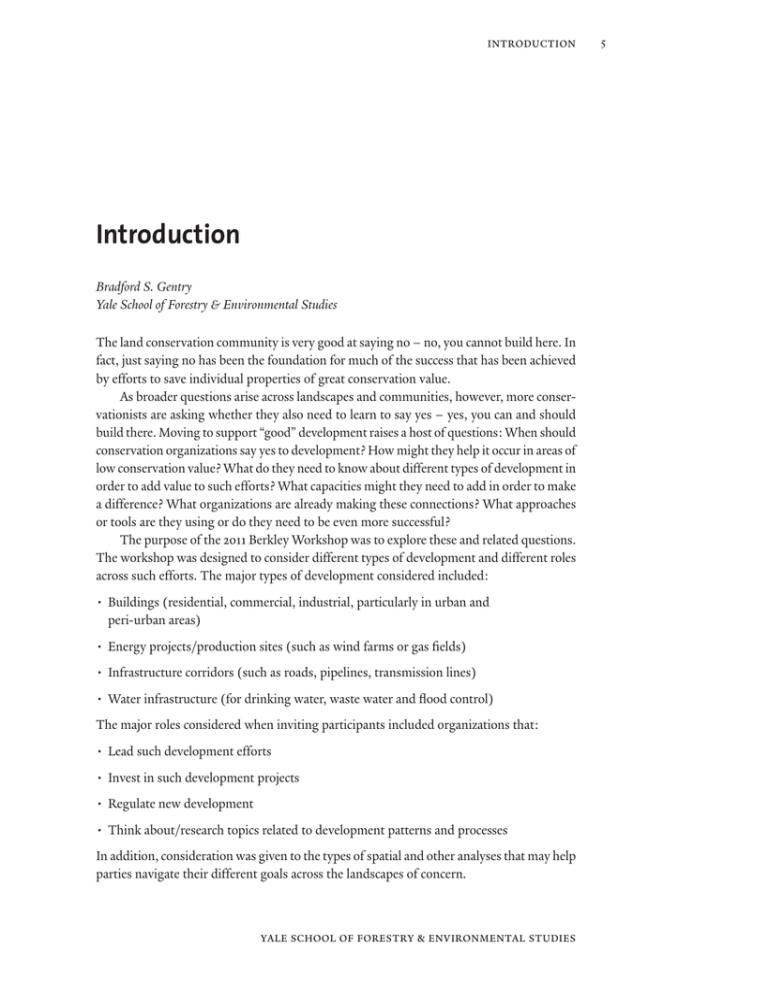
introduction Introduction Bradford S. Gentry Yale School of Forestry & Environmental Studies The land conservation community is very good at saying no – no, you cannot build here. In fact, just saying no has been the foundation for much of the success that has been achieved by efforts to save individual properties of great conservation value. As broader questions arise across landscapes and communities, however, more conservationists are asking whether they also need to learn to say yes – yes, you can and should build there. Moving to support “good” development raises a host of questions: When should conservation organizations say yes to development? How might they help it occur in areas of low conservation value? What do they need to know about different types of development in order to add value to such efforts? What capacities might they need to add in order to make a difference? What organizations are already making these connections? What approaches or tools are they using or do they need to be even more successful? The purpose of the 2011 Berkley Workshop was to explore these and related questions. The workshop was designed to consider different types of development and different roles across such efforts. The major types of development considered included: • Buildings (residential, commercial, industrial, particularly in urban and peri-urban areas) • Energy projects/production sites (such as wind farms or gas fields) • Infrastructure corridors (such as roads, pipelines, transmission lines) • Water infrastructure (for drinking water, waste water and flood control) The major roles considered when inviting participants included organizations that: • Lead such development efforts • Invest in such development projects • Regulate new development • Think about/research topics related to development patterns and processes In addition, consideration was given to the types of spatial and other analyses that may help parties navigate their different goals across the landscapes of concern. yale school of forestry & environmental studies 5 6 how can conservation organizations help development go where it “should”? The sixth annual Berkley Workshop on strategies for the future of land conservation was held at the IslandWood Center on Bainbridge Island, near Seattle, Washington from July 12-14. Proceedings of past workshops are available at: http://environment.yale.edu/ publication-series/land_use_and_environmental_planning/ Berkley Workshop Attendees • Forrest Berkley, Board Member, Maine Coast Heritage Trust • Andrew Bowman, Program Director, Doris Duke Charitable Foundation • Armando Carbonell, Senior Fellow and Chairman of the Department of Planning and Urban Form, Lincoln Institute for Land Policy • Michelle Connor, EVP/Chief Program Officer, Cascade Land Conservancy* • Michael Dowling, Vice Chairman, Colorado Oil & Gas Conservation Commission • Gene Duvernoy, President, Cascade Land Conservancy* • Kim Elliman, CEO, Open Space Institute • Ona Ferguson, Senior Associate, Consensus Building Institute • Paul Fleming, Manager Climate and Sustainability Group, Seattle Public Utilities • Valerie Fuchs, Post-Doctoral Fellow in Green Infrastructure, Yale University • Brad Gentry, Director Berkley Conservation Program, Yale University • Arthur Haubenstock, VP Regulatory Affairs and Assistant General Counsel, BrightSource Energy • Suedeen Kelly, Partner, Patten Boggs LLP • Jim Kilberg, Senior Vice President for Real Estate, Plum Creek • Gary Knight, Director, Florida Natural Areas Inventory Program • Gil Livingston, President, Vermont Land Trust • Kelly Mann, Executive Director, Urban Land Institute Seattle District • Lyell Sakaue, Program Manager, Corporate Citizenship, IBM • Shari Schaftlein, Program/Policy Development Team Leader, Federal Highway Administration Office of Project Development and Environmental Review • Gina Schrader, Yale School of Forestry & Environmental Studies • Marc Smiley, Partner, Decisions Decisions ( facilitator) • Peter Stein, Managing Director, Lyme Timber Company • Eileen Swan, Executive Director, New Jersey Highlands Council yale school of forestry & environmental studies introduction • Mike Tetreault, Director, The Nature Conservancy’s Maine Chapter • Kathy Pierce, Bonneville Power Administration • Rand Wentworth, President, Land Trust Alliance • Kate White, Team Leader, Institute for Water Resources, U.S. Army Corps of Engineers • Steve Whitney, Ecosystem Services Program Officer, Bullitt Foundation * Note: In November 2011, Cascade Land Conservancy changed its name to Forterra (http://www. forterra.org/). Since this report was written before the name was changed it will continue to refer to the Cascade Land Conservancy. yale school of forestry & environmental studies 7
